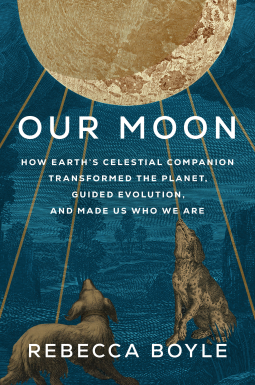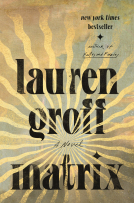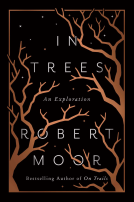
Our Moon
How Earth's Celestial Companion Transformed the Planet, Guided Evolution, and Made Us Who We Are
by Rebecca Boyle
This title was previously available on NetGalley and is now archived.
Send NetGalley books directly to your Kindle or Kindle app
1
To read on a Kindle or Kindle app, please add kindle@netgalley.com as an approved email address to receive files in your Amazon account. Click here for step-by-step instructions.
2
Also find your Kindle email address within your Amazon account, and enter it here.
Pub Date Jan 16 2024 | Archive Date Apr 16 2024
Random House Publishing Group - Random House | Random House
Talking about this book? Use #OurMoon #NetGalley. More hashtag tips!
Description
WINNER OF THE LOS ANGELES TIMES BOOK PRIZE • A NEW YORKER AND SMITHSONIAN BEST BOOK OF THE YEAR • A New York Times Book Review Editors’ Choice
Many of us know that the Moon pulls on our oceans, driving the tides, but did you know that it smells like gunpowder? Or that it was essential to the development of science and religion? Acclaimed journalist Rebecca Boyle takes readers on a dazzling tour to reveal the intimate role that our 4.51-billion-year-old companion has played in our biological and cultural evolution.
Our Moon’s gravity stabilized Earth’s orbit—and its climate. It drew nutrients to the surface of the primordial ocean, where they fostered the evolution of complex life. The Moon continues to influence animal migration and reproduction, plants’ movements, and, possibly, the flow of the very blood in our veins.
While the Sun helped prehistoric hunters and gatherers mark daily time, early civilizations used the phases of the Moon to count months and years, allowing them to plan farther ahead. Mesopotamian priests recorded the Moon’s position in order to make predictions, and, in the process, created the earliest known empirical, scientific observations. In Our Moon, Boyle introduces us to ancient astronomers and major figures of the scientific revolution, including Johannes Kepler and his influential lunar science fiction.
Our relationship to the Moon changed when Apollo astronauts landed on it in 1969, and it’s about to change again. As governments and billionaires aim to turn a profit from its resources, Rebecca Boyle shows us that the Moon belongs to everybody, and nobody at all.
Available Editions
| EDITION | Other Format |
| ISBN | 9780593129722 |
| PRICE | $28.99 (USD) |
| PAGES | 336 |
Available on NetGalley
Average rating from 45 members
Readers who liked this book also liked:
; Debra Colodner; Catherine Bartlett; Jesús M. García; Craig Ivanyi; Roxane Ramos
Children's Nonfiction, Outdoors & Nature, Travel
Alvin E. Roth
Business, Leadership, Finance, Health, Mind & Body, Politics & Current Affairs


















